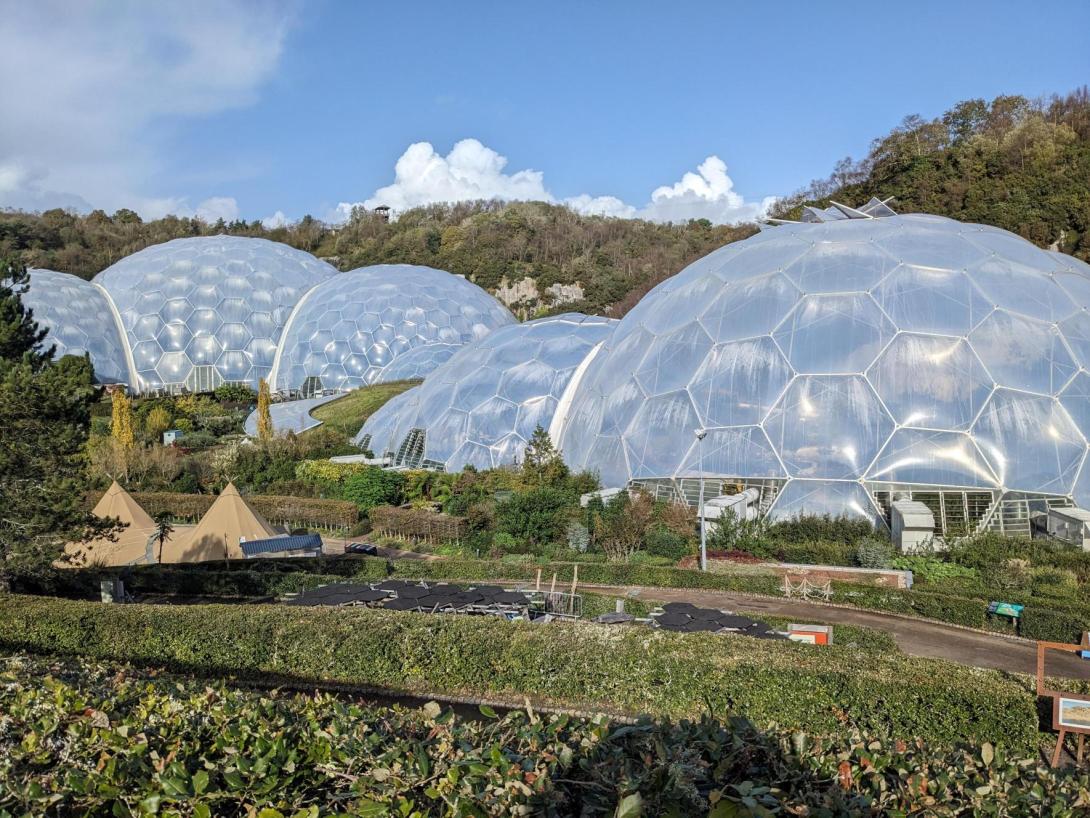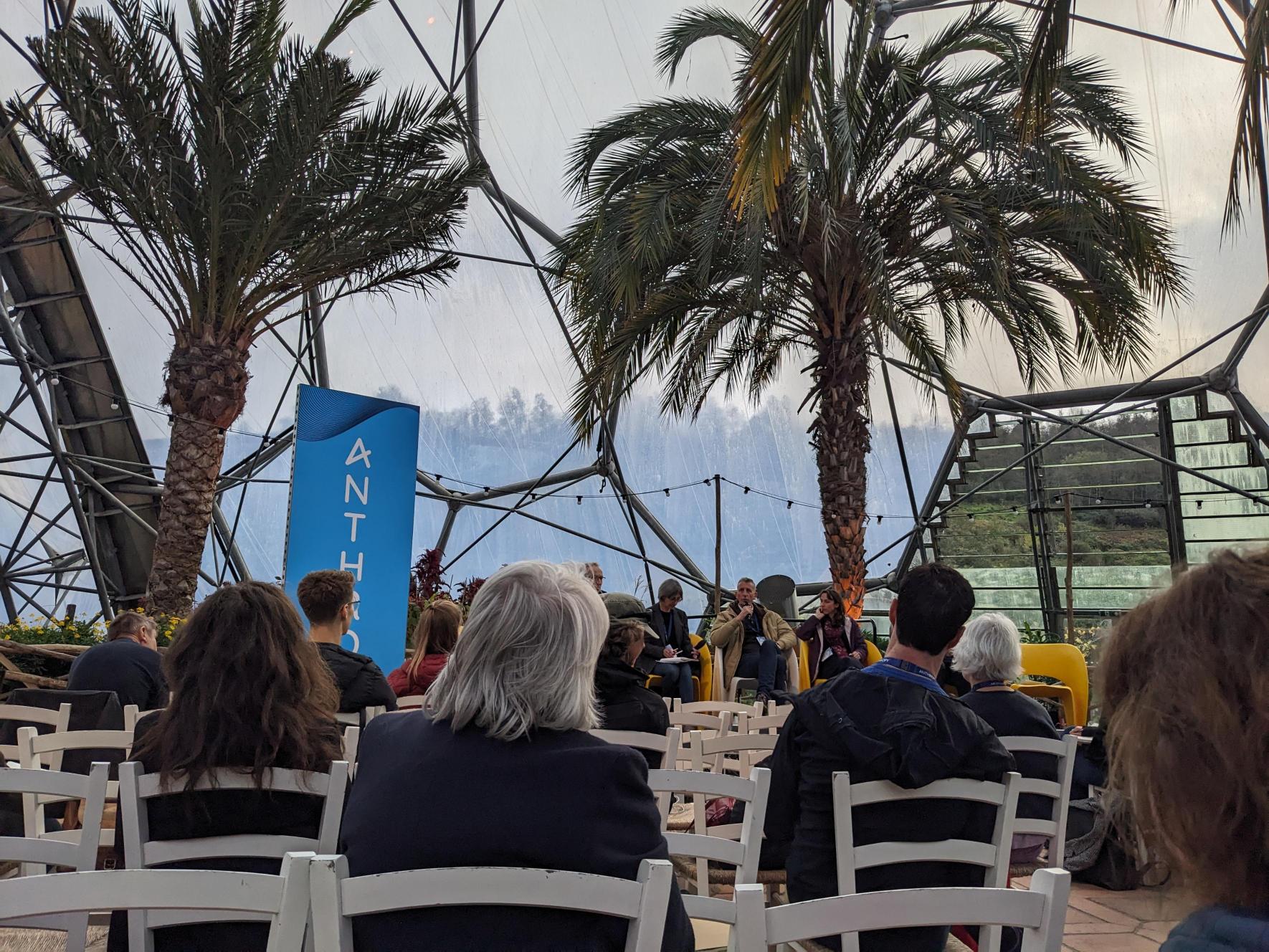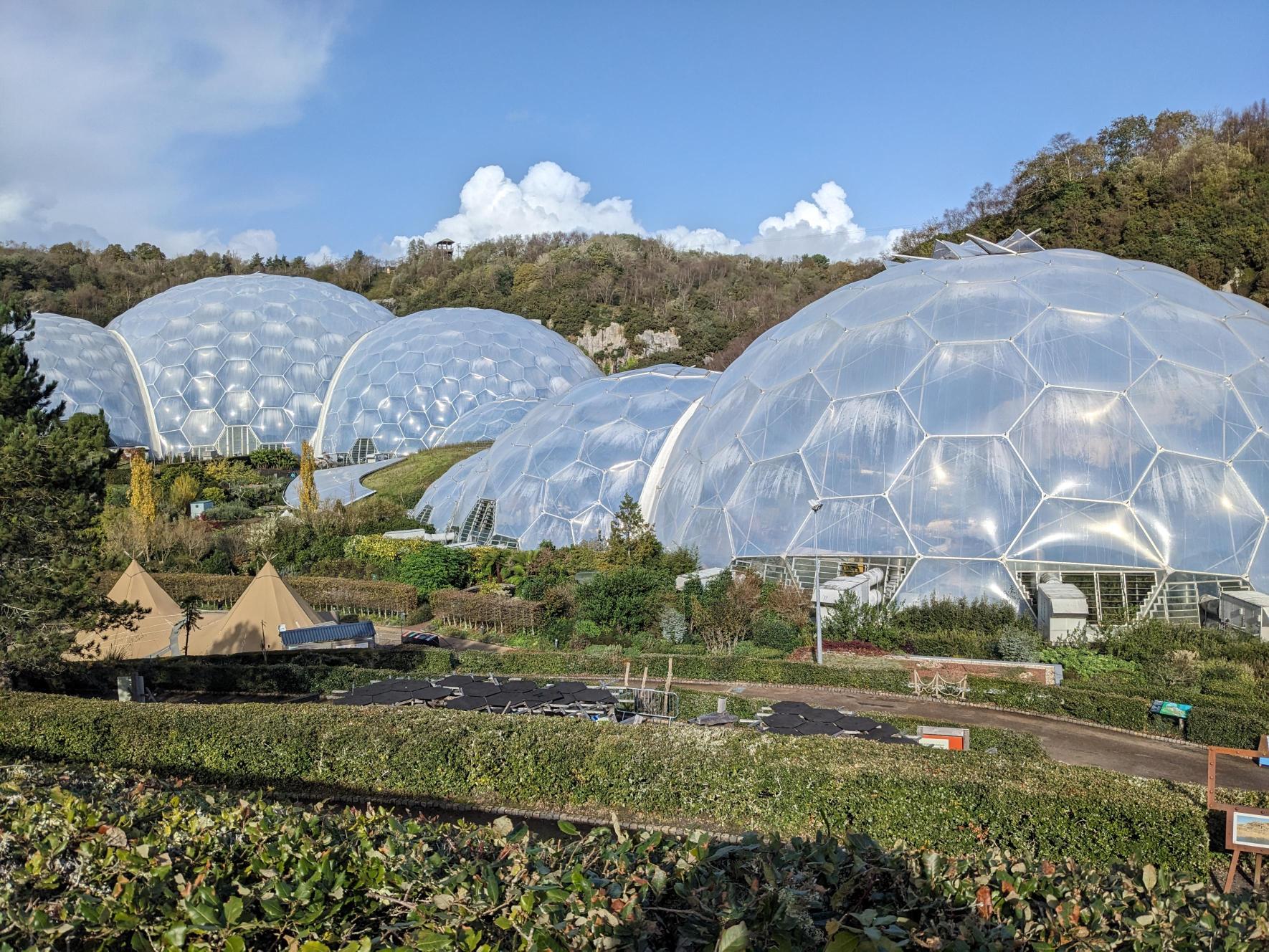16 November 2023
How do we change a food system that disempowers citizens?

When I was invited to speak at Anthropy23 I was intrigued.
A big conference on the future of Britain hosted by the Eden Project? I wasn’t disappointed.
As storm Ciaran swirled around the magnificent biomes, with roul-roul partridges scampering around our feet, it was a great moment to step back from the day job to listen, think and discuss some of the major challenges of our time.
Not surprisingly, I spend a lot of time talking about food systems and their impact on us, and our planet. Here at The Food Foundation, we look at the problems caused by what we’re eating from the view point of the food system, what food it is selling and how it is sold – because we know this has such a profound impact on the choices available to us.
But at Anthropy, I was forced to think more about our role as human beings, as citizens, and our individual role in shaping our collective future.

First, I was reminded about the profound power of connection with one another. I had a chance conversation with the Barefoot Lawyer who told me that he thought it would be impossible to tackle the climate crisis unless we fundamentally changed how businesses operate.
He said the problem is distant shareholders who have no need to be connected to the real business of the business (just an interest in the balance sheet). Instead, businesses should to be run by people vested in the quality and nature of the business activity.
He said the problem is dis-connection and in particular ownership by distant shareholders who have power without responsibility and has been advising Riverford Organic Farmers about their move to employee ownership.
I listened to a number of brilliant environmental campaigners, one of whom said something along the lines of: “You can’t protect what you don’t care for. You can’t care for what you don’t love. You can’t love what you don’t see".
He was talking about the wonder of natural world but he could also have been talking about wonder of a hearty communal meal, prepared with love from ingredients produced with care.
While there was a palpable urgency around some of the deep challenges we face as a nation – not least extreme inequalities and the climate and nature catastrophe – there was little consensus on whose job it was to solve it" - Anna Taylor
And Will Hutton gave an impassioned speech about food and how we have become so focused on the “I” to the detriment of the “us” – he has a book coming out in April which will touch on this and examine how Harold MacMillan spoke about the nation’s diet 60 years ago.
So, maybe changing the food system begins with a great meal, building connections and painting a picture together of a different way of eating.
Second, while there was a palpable urgency around some of the deep challenges we face as a nation – not least extreme inequalities and the climate and nature catastrophe – there was little consensus on whose job it was to solve it.
Some were advocates of the role of each of us as individual consumers and the power we have; businesses were accused of passing the buck to policy makers and others placed the blame on commercial greed gone mad.
Obviously, citizens, businesses and policy makers each have a part to play, and none should be waiting for someone else to act before they do.

Here at the Food Foundation we are pretty pragmatic and believe in getting on and changing things that can be changed right now (as you can see from what we’ve achieved with Peas Please over the last four years), but we also point to the evidence that for some of the more fundamental incentives in the current food system to shift, Government intervention is the only option.
Believe me, we wish it was another way, as convincing policy makers of the need to intervene is far from easy. But I was challenged – “so you basically think that the only way we can change how we eat is by changing the dominance of “Big Food”? Isn’t that a wholly disempowering message?”.
I made the point that I think the food system has in fact disempowered us as citizens.
For the vast majority of citizens in Britain it is very difficult to buy fruit and veg produced in a local farm, or choose a baby food which is genuinely nutritious, or afford meat which is produced with genuinely high animal welfare standards.
But of course, we do have some agency, some of us more than others, and we should use it whenever we can.
When I did my TEDx talk I laid out actions which I think we can take as individual citizens and reiterated the power we have in every plate of food we eat.
But what does this all mean for the job of changing the food system?
The Barefoot lawyer, told me about the Berkana Institute’s Two Loop model for systems change.
It leaves you with questions about whether change to systems is incremental or radical (this is an interesting read from the academic community), but what I took from the model is that a vital pre-requisite to change is building the community of people, humans, the ‘pioneers’ who want change to happen.
I came away trying to think about how we, a small charity with a 22 talented staff, can play a bigger role in building that community.



